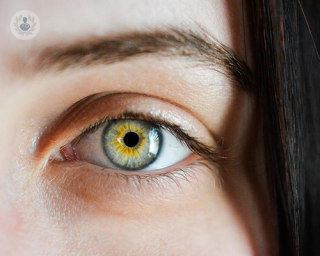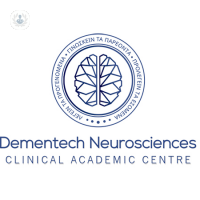What is neuromyelitis optica?
Neuromyelitis optica (NMO), which is also known as Devic's disease, is an extremely rare central nervous system disorder that affects the spinal cord and optic nerves.
What can the disorder cause or lead to?
Neuromyelitis optica can cause blindness, weakness, paralysis, nerve pain, and muscle spasms.
Who is most at risk?
The condition can affect both men and women of all ages, but generally tends to affect the female population more than the male population.
What are the main symptoms of neuromyelitis optica?
There are a numerous amount of symptoms that patients suffering from neuromyelitis optica commonly present with. The main ones include the following:
- vision loss
- eye pain
- weakness in arms and/or legs
- vomiting
- arm or leg pain
- bladder problems
- bowel problems
- sexual problems
- painful arm and leg muscle spasms
- colours appearing less vivid and faded
- irritated and swollen spinal cord
- optic neuritis
How is neuromyelitis typically diagnosed?
To effectively and accurately diagnose a patient with neuromyelitis optica, a MRI scan of the patient's brain and spinal cord will be carried out. Blood tests will then be the next step in the diagnosis process, and in some cases, patients may also be required to have a lumbar puncture, where a thin needle will remove a sample of fluid surrounding the patient's spine to test it.
What are the treatment options for the condition?
Unfortunately, there is no cure for neuromyelitis optica. However, in order to slow down the progression of the disease, as well as to ease and improve symptoms, steriods are often prescribed to patients to reduce inflammation.
Which specialist treats neuromyelitis optica?
Neurologists are the specialists who treat this condition.
11-20-2020 09-22-2023Neuromyelitis optica
Dr Girija Sadalage - Neurology
Created on: 11-20-2020
Updated on: 09-22-2023
Edited by: Conor Dunworth
What is neuromyelitis optica?
Neuromyelitis optica (NMO), which is also known as Devic's disease, is an extremely rare central nervous system disorder that affects the spinal cord and optic nerves.
What can the disorder cause or lead to?
Neuromyelitis optica can cause blindness, weakness, paralysis, nerve pain, and muscle spasms.
Who is most at risk?
The condition can affect both men and women of all ages, but generally tends to affect the female population more than the male population.
What are the main symptoms of neuromyelitis optica?
There are a numerous amount of symptoms that patients suffering from neuromyelitis optica commonly present with. The main ones include the following:
- vision loss
- eye pain
- weakness in arms and/or legs
- vomiting
- arm or leg pain
- bladder problems
- bowel problems
- sexual problems
- painful arm and leg muscle spasms
- colours appearing less vivid and faded
- irritated and swollen spinal cord
- optic neuritis
How is neuromyelitis typically diagnosed?
To effectively and accurately diagnose a patient with neuromyelitis optica, a MRI scan of the patient's brain and spinal cord will be carried out. Blood tests will then be the next step in the diagnosis process, and in some cases, patients may also be required to have a lumbar puncture, where a thin needle will remove a sample of fluid surrounding the patient's spine to test it.
What are the treatment options for the condition?
Unfortunately, there is no cure for neuromyelitis optica. However, in order to slow down the progression of the disease, as well as to ease and improve symptoms, steriods are often prescribed to patients to reduce inflammation.
Which specialist treats neuromyelitis optica?
Neurologists are the specialists who treat this condition.


An expert's guide to neuromyelitis optica
By Dr Martin Wilson
2024-11-18
Neuromyelitis optica is a rare autoimmune condition that can lead to severe symptoms such as paralysis or loss of vision if left untreated. In his latest article, leading neurologist Dr Martin Wilson explains this condition in detail, including its causes, signs and symptoms and treatment. See more
Experts in Neuromyelitis optica
-
Dr Wallace Brownlee
NeurologyExpert in:
- Multiple sclerosis
- Neuromyelitis optica
- Headache
- Epilepsy
- Parkinson's disease
- Neurological disorders
-
Dr Martin Wilson
NeurologyExpert in:
- Multiple sclerosis
- Headache
- Neurological disorders
- Neurological treatments
- Parkinsonism
- Neuromyelitis optica
-
Dr Girija Sadalage
NeurologyExpert in:
- Myasthenia gravis
- Myopathies
- Neuromuscular disease
- Neuromyelitis optica
- Paraneoplastic syndromes
- Peripheral neuropathy
-
Dr Maria Papachatzaki
NeurologyExpert in:
- Multiple sclerosis
- Epilepsy
- Neuromyelitis optica
- Restless legs syndrome
- Sleep disorders
- Hypersomnia
- See all

Circle Rehabilitation, Birmingham - part of Circle Health Group
Circle Rehabilitation, Birmingham - part of Circle Health Group
25 Pebble Mill Rd, Birmingham
No existe teléfono en el centro.
By using the telephone number provided by TOP DOCTORS, you automatically agree to let us use your phone number for statistical and commercial purposes. For further information, read our Privacy Policy
Top Doctors

The Harborne Hospital - part of HCA Healthcare
The Harborne Hospital - part of HCA Healthcare
Mindelsohn Way, B15 2FQ
No existe teléfono en el centro.
By using the telephone number provided by TOP DOCTORS, you automatically agree to let us use your phone number for statistical and commercial purposes. For further information, read our Privacy Policy
Top Doctors

Dementech Neurosciences
Dementech Neurosciences
Lister House, 11-12 Wimpole St, London, W1G 9ST
No existe teléfono en el centro.
By using the telephone number provided by TOP DOCTORS, you automatically agree to let us use your phone number for statistical and commercial purposes. For further information, read our Privacy Policy
Top Doctors
-
Circle Rehabilitation, Birmingham - part of Circle Health Group
25 Pebble Mill Rd, Birmingham, BirminghamExpert in:
- Diagnostic Imaging
- Physiotherapy
- Dizziness
- Neurology
- Brain MRI
-
The Harborne Hospital - part of HCA Healthcare
Mindelsohn Way, B15 2FQ, BirminghamExpert in:
- Digestive
- Cancer
- Orthopaedic surgery
- Thoracic Surgery
- Diagnostic Imaging
- Obstetrics and Gynaecology
-
Dementech Neurosciences
Lister House, 11-12 Wimpole St, London, W1G 9ST, W1G Marylebone LondonExpert in:
- Neurology
- Psychology
- Psychiatry
- See all
- Most viewed diseases, medical tests, and treatments
- Migraine
- Genetic testing
- Lumbar herniated disc
- Spinal surgery
- Minimal access surgery (keyhole surgery)
- Tremor
- Seizures
- Parkinson's disease
- Botulinum toxin (Botox™)
- Abnormal gait







